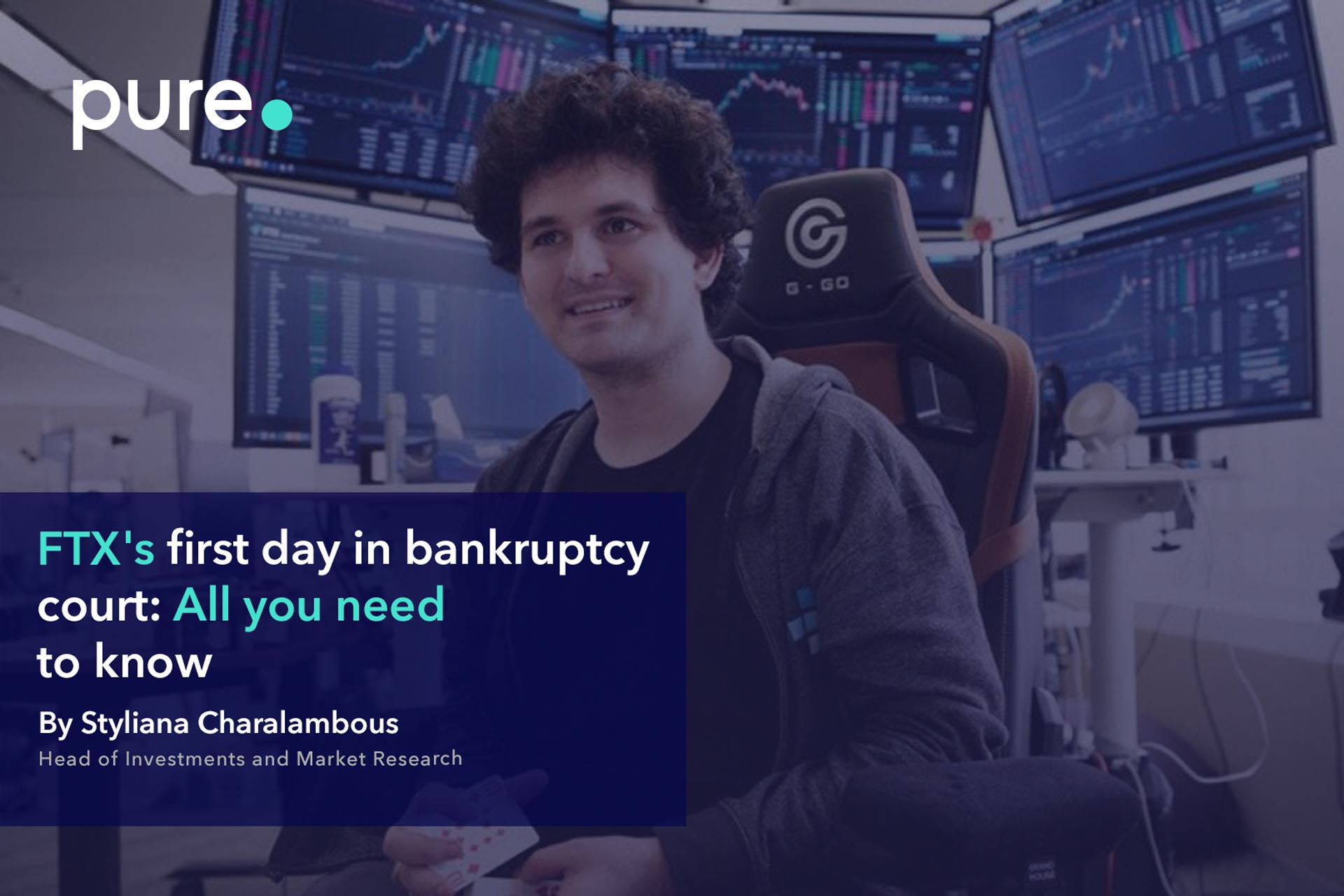
Attorneys and executives representing the collapsed cryptocurrency platform FTX appeared in court on Tuesday where they revealed a continued investigation into the company’s assets formerly controlled by its founder and former CEO Sam Bankman-Fried.
They also pleaded to keep the names of the company’s customers shielded from public view.
The two-hour hearing was a traditional measure meant to authorize FTX’s requests to pay its advisors, employees, and vendors, as well as address disputes over how the case proceeds in its initial stages.
Sam Bankman-Fried, disgraced founder of the now collapsed crypto exchange FTX and trading house Alameda Research, apologized to staff in a letter that outlined a crash in “collateral” to $9 billion from $60 billion.
“I didn’t mean for any of this to happen, and I would give anything to be able to go back and do things over again,” he wrote in the message sent to employees Tuesday and obtained by Bloomberg News.
A slide in digital-asset markets in spring roughly halved collateral to $30 billion, while liabilities were $2 billion, he said.
A combination of a credit squeeze, a further selloff in virtual coins and a “run on the bank” left collateral at $9 billion ahead of FTX’s Nov. 11 bankruptcy, he wrote. The estimate for liabilities had reached $8 billion by then, he said.
An ‘absence’ of asset information
As expected, U.S. Bankruptcy Judge John Dorsey, who is presiding over the case, granted FTX the right to pay its ongoing business expenses. Bankman-Fried and his former top deputies who have now stepped down from their roles at the platform were explicitly denied compensation.
However, in a presentation to the court, FTX’s lawyer, James Bromley of Sullivan & Cromwell, noted the extraordinary circumstances that are keeping the crypto exchange’s new managers and forensic investigators from identifying its assets.
FTX customer names to remain under seal — for now
A dispute over the identity of FTX’s more than 1 million customers whose funds are now tied up in the bankruptcy also came up during Tuesday’s hearing.
The U.S. Trustee, a government representative appointed in U.S. bankruptcy cases, objected to FTX’s position that its customers’ names should remain under seal.
Jurisdiction
In anticipation of disagreement over which country has authority to administer FTX’s assets — the U.S. or The Bahamas where FTX is headquartered — FTX noted two factors that could weigh in favor of the U.S. Bankruptcy court.
s of October 31, 2022, the debtor companies in the U.S. filing collectively employed 330 workers around the world, with the largest number —127 — working in the U.S.
As for the company’s global customers, he added, most reside in the Cayman Islands and the Virgin Islands, followed by customers from China, Great Britain, and Singapore. Among FTX’s international entities, 94% of their customers were customers of U.S. debtor, FTX Trading Ltd. Around 6% were customers of FTX Digital Markets Ltd., a Bahamian entity.


